Fuelin’ Around: Chevron Buys Hess
While coverage of high finance isn’t generally a top priority of this site – we know most of you lot would rather read about Murilee’s latest Junkyard Find and, to be honest, so would I – any deal involving a pair of major fuel station brands is worth more than a passing mention.
California Seeking to Fine Companies Over Gasoline Price Gouging
Despite the perpetual ebb and flow of fuel prices across the United States, you can reliably count on California having some of the highest per-gallon costs in the nation. While that’s not entirely the fault of energy companies – California’s high tax rate on just about everything is a major factor here – oil firms are indeed raking in unprecedented profits right now and the government would much rather you focus on that than any role it might have likewise played. To that effect, Governor Gavin Newsom has announced new financial penalties for corporations accused of price-gouging wherever fueling is concerned.
Gas War: Biden Admin Lifting Oil Sanctions On Venezuela
The United States is rethinking its relationship with oil producers in Venezuela and lifting sanctions. On Saturday, The Treasury Department said it would allow Chevron to produce and export oil from the region if the country agreed to restart diplomatic talks with opposition groups. The theory that U.S. leadership wants to see more oil produced to help drive down prices appears valid. But the resulting action still seems at odds with the Biden administration’s lofty environmental goals and is unlikely to move the needle on fuel pricing anytime soon.
OPEC, Russia Align on Oil Production Cut
Saudi Arabia and Russia have agreed to cut oil production in a bid to drive prices higher.
Fuel Prices Are Allegedly Cooling Off
With the last several months delivering record-breaking fuel prices, as society endures what has undoubtedly been the largest spike in energy cost and inflation since the 1970s, everyone has been hoping to catch a break this summer. Some have even gotten theirs. While things are still looking exceptionally bleak in the long term, the United States appears to be enjoying a modest reprieve.
U.S. Government Cancels Oil and Gas Leases Amid Record Fuel Prices
Despite the United States confronting some of the highest energy prices in its history, the Biden administration has canceled oil and gas lease sales in the Gulf of Mexico and Alaska’s Cook Inlet.
According to the American Automobile Association (AAA), national fuel prices are averaging out to a whopping $4.43 per gallon of regular gasoline. Diesel is much higher at $5.56 and is speculated to endure mass shortages in the coming months as reports from the Northeast have indicated there are already seeing record-low inventories. Over the past twelve months, fuel prices have risen by nearly $1.50 per gallon and most market analysts expect rates to continue moving upwards through the summer. Though they’re not all in agreement as to who should be blamed for our current predicament.
Alright, Let's Talk About Fuel Prices and How We Got Here
Fuel prices have, like most other things, become totally ridiculous. In the United States, the average rate for a gallon of gasoline has eclipsed $4.00 for the first time in a decade. Though what’s probably the most alarming is how quickly it happened. Plenty of Americans could still find fuel for under $2.00 a gallon in April of 2020, meaning we’ve seen prices effectively double within two years in the United States. Meanwhile, European nations more accustomed to lofty fuel bills have been sounding the warning bells (especially in regard to diesel) for months.
Despite the issue existing long before Russia invaded Ukraine, the war has become the de facto explanation among politicians for why you had to swap to less-fancy dog food and off-brand soda to keep the truck gassed up. This is also influencing the government’s response to how to handle the present fuel crisis, which looks as if it’ll be getting worse before it gets better. But let’s take a look at how we got here before we dive into what’s being done (or not done) about it.
Rising Fuel Prices Have Upended the Economy
Unless you’ve spent the last twelve months locked inside your home, then you’re probably dreading the next trip to the gas station. The average price for a gallon of 87 octanes has reached $3.40 in the United States. That’s about 50 percent steeper than it was at the start of 2021 and undoubtedly more than you’re wanting to shell out today. Though one cannot ignore the dizzying rates being advertised outside of British “petroleum parlors” or France’s many “un bordel pour voitures.” Canadians are also forced to endure higher gasoline prices, as the government tends to stack the taxes a little higher and the U.S. dollar tends to be more valuable. At least for now.
All you need to know for the purposes of this article is that fuel prices are up and it’s influencing the economy in some pretty dramatic ways.
Gas War: Biden Suspends Oil Drilling Leases in Alaska
On Tuesday, the Biden administration announced it would be suspending oil and gas leases issued in Alaska’s Arctic National Wildlife Refuge during the last days of the Trump administration. Bent on maintaining the United State’s energy independence, Donald Trump had moved to expand fossil fuel development in ways that would have been at odds with predecessor Barack Obama. But today’s White House represents a return to form, with an interest in supplanting traditional energy concerns with what it believes will be greener alternatives.
It’s bad news for the Alaskan state government, which had hoped to devote a subset of the region to rebuilding its oil industry by taking advantage of its vast reserves. But environmentalists and a subset of tribal representatives have praised the decision to prohibit development on protected lands. We expect consumers will have conflicting opinions, based largely upon how much they’re willing to pay at the pump.
We Ran Out of Fuel on the East Coast
With the Colonial Pipeline shut down due to last week’s ransom hacking, the Eastern United States has found itself running out of fuel. The line was shut down on Friday as a precaution and we’ve since learned that it’s not going to be reopened until this weekend — and maybe not even then.
While this has left some of us with fuel prices creeping aggressively toward $3 per gallon, other parts of the East Coast have seen panic buying and legitimate outages. But it’s hardly surprising when you consider the Colonial Pipeline is the country’s largest. Turning off the tap has ramifications and they’re manifesting all across the coast, though the situation appears to be substantially worse in southern states.
Summer Gas Shortage Likely for Dumbest Reason
As if you needed more doom and gloom to kick off this week, the National Tank Truck Carriers (NTTC) lobby has confessed that its fleet will go into the next few months operating well below capacity. That means there’s a very good chance that some parts of the country could see gas shortages over the summer. While we’re praying that this doesn’t come with with the deluge of less-than-desirable automobiles that followed the infamous 1973 oil crisis, a similar spike in fuel price is likely as gasoline becomes sporadically difficult to find.
With the United States technically still energy independent, the culprit is not a foreign oil embargo but our own inability to plan ahead. North America was already operating with a deficit of qualified tanker drivers ahead of the pandemic. Lockdowns suppressed demand as everyone was forced to remain immobile, suppressing demand that ultimately encouraged widespread layoffs and early retirement. Now there aren’t enough drivers as demand stabilizes.
QOTD: Change the World's Climate by 2030 or Just Talk About It?
The world’s climate has been centerstage the last two days. President Biden and other world leaders have vowed to reduce global warming by making drastic changes. Will they follow through?
At the 2015 Paris climate accord, then-President Obama set greenhouse gas reduction at half what Biden has proposed. Former President Trump, Obama’s successor, did little to forward this, but is it realistic for Biden, who served as Obama’s vice president, to double down on Obama’s goal in a relatively short time frame?
Biden to Slash U.S. Fossil Fuel Emissions 52 Percent by 2030
Today President Joe Biden committed to cutting U.S. fossil fuel emissions up to 52 percent by 2030. His statement came during a virtual climate change summit with 40 world leaders.
Oil 2021 Outlook – Oversupply and Lower Demand
Oil 2021, an analysis by the International Energy Agency (IEA), explains why the pandemic caused the collapse in demand for oil in 2020, and why it may never return to ‘normal’.
Activist Attacks Oil Companies by Shaming Ad Agencies
Environmental activist Jamie Henn, and his firm, Fossil Free Media, are attacking advertising and PR agencies that work on oil industry accounts. Their initiative, Clean Creatives, is designed to shame some of the world’s largest PR and ad agencies in hopes that they will resign.
“We want to get PR and ad agencies to stop working with the oil industry because they are spreading misinformation about climate change and lobbying action to address the crisis,” said Henn. “Our reliance on fossil fuels is driving global warming which will have serious impacts on our environment, health, and economy.”
There's Little Reason to Hunt for Fresh Oil in 2020
Ever since the first major oil fields were discovered at the start of the 20th century, the world has been on a never-ending hunt to see where else black gold might be hiding. Monetizing seepage areas goes back even further. But with global oil demand having dissipated on account of the pandemic, there’s little reason to spend cash on additional procurement.
Combine that with the green movement doing everything it can to convince governments there’s only one ethical way to handle energy, and we’re likely to be moving into an era where fossil fuels sell for less but cost more to harvest/utilize thanks to carbon emission regulations.
This has left oil companies pondering the true value of seeking new sources of oil, with some having already decided there’s no point.
Global Oil Producers to Hold Emergency Meetings This Week
The world’s largest oil producers are meeting this week for negotiations aimed at saving the energy sector a lot of hardship further down the road. That includes the Organization of the Petroleum Exporting Countries (OPEC), which has been at odds with itself more than usual of late. Hampered by dwindling demand, member countries are suffering and aren’t sure what’s to be done about last month’s price plunge and surplus of crude.
During the cartel’s last meeting, Russia declined to collaborate with OPEC’s planned production cuts. This sent Saudi Arabia into a furious tizzy; it quickly attempted to flood the market with bargain oil in an attempt to drive out lesser players. Like everything else, this was further complicated by the global pandemic. The coronavirus has suppressed oil use to a point where suppliers are growing concerned about storage capacity running out.
OPEC Infighting and Coronavirus Adds Up to Affordable Gas
With the coronavirus keeping people indoors and shale drilling keeping U.S. oil prices relatively stable, you’ve probably noticed gasoline bills being quite reasonable of late. Well, don’t get used to the sums you’re paying now, as analysts project fuel prices will drop even lower as 2020 progresses. While you might think this is due to national quarantines and lessened demand, you’d only be half right.
Last week, the Organization of the Petroleum Exporting Countries (OPEC) failed to strike a deal that would have enacted production cuts to better stabilize the market. Instead of slashing output, Saudi Arabia started slashing prices as it sought ways to ramp up production. Russia immediately responded by promising to increase its own output, leading to what looks like an all-out price war.
It's Gonna Be a Showdown: EPA Head Says California Won't Drive U.S. Fuel Regulations
The Trump administration’s chief environmental regulator claims the Environmental Protection Agency will not pursue stricter fuel economy mandates after 2025. EPA Administrator Scott Pruitt also said California won’t call the shots for the rest of the country just because it can set its own rules on emissions.
“California is not the arbiter of these issues,” he said. Currently, California and 16 other states have pledged to maintain Obama-era emission when federal regulators decide to roll them back “but that shouldn’t and can’t dictate to the rest of the country what these levels are going to be,” according to Pruitt.
Stick that in your tailpipe, one-third of America.
Achates Power Brings an Efficiency Revolution To Detroit
Thus far, the North American International Auto Show has been a truck festival – more specifically, a green-truck fest. Ram showed a hybrid 1500. Ford revealed their V6 diesel. Chevrolet surprised with an inline-six diesel. Clearly the Big Three are looking at the calendar, with a big red circle over the 2025 CAFE standards looming like a dark cloud.
Achates Power, a fourteen-year-old startup from San Diego, has a different idea. By combining a variety of existing technologies – some of which date from before World War Two – they have developed an engine that they expect to meet 2025 fuel economy standards, emissions standards, and most importantly, the performance standards of light-truck buyers.
How does 37 mpg sound in a half-ton truck? That’s on gasoline. The Achates engine can also manage 42 mpg in the same truck running on diesel.
Party at the Pumps: After Explosion, Gasoline Flows Again to the East Coast
America’s largest gasoline pipeline returned to operational status today after an explosion in Alabama six days ago killed one worker and injured five others.
Following repair delays caused by an interior fire, Colonial Pipeline Company announced that its Line 1 pipeline was restarted early Sunday morning. However, it will take several days for the fuel delivery supply chain to return to normal. The same goes for pump prices.
Truck, SUV Owners Rejoice as Forecasters Predict a Lengthy Oil Glut
Automakers can expect a favorable environment for lucrative truck and SUV sales well into next year, as the right conditions come together for a continued oil glut. That heralds lower prices at the pump, less painful driving, and less scrutiny of EPA mileage figures on Monroney stickers.
Oil supply and inventories are rising, even as demand falls off sharply, while overseas interests are conspiring to keep prices down — and in their favor.
New Study Claims Biofuels Harm the Environment Worse Than Fossil Fuels
A new study from the University of Michigan adds (bio)fuel to the growing backlash against supposedly clean and green fossil fuel substitutes.
The study claims that the environmental benefits of ethanol and biodiesel — championed by both the federal government and the lucrative biofuel industry — are based on completely false assumptions, the Detroit Free Press reports.
AAA Study Finds Drastic Differences In Gasoline Quality
AAA hired an independent lab to complete 4,000 miles of simulated driving to compare Top Tier gasoline with the cheaper blends. Their findings show that the additive packages in Top Tier gas resulted in fewer carbon deposits than those found in the non-Top Tier gasoline test.
The study also found that there were some secondary benefits to the better additive packages, including slightly better fuel economy and better drivability. The benefits are apparent, but do consumers really care?
Average Fuel Economy Rises, So You Know Gas Prices Are Going Up
Drivers aren’t getting the same deal at the pumps as they were last winter, and the gas mileage of new vehicles shows it.
Researchers at the University of Michigan say the average sales-weighted fuel economy of new vehicles hit 25.4 miles per gallon in May, the highest figure so far this year. It’s still less than the all-time high set in August 2014, but it shows not every car buyer is going for the thirstiest vehicle they can afford.
You Can Take My Light-Duty Diesel Truck From My Cold, Dead Hands
You know the world is a bit upside-down when master wordsmith Jack Baruth spins a web so tight in favor of the EPA and CARB that even the Best and Brightest can’t see through it.
Jack makes a valid point today: light-duty trucks, especially those of the diesel variety, are often driven by people who don’t need the capability that those trucks provide. It’s those diesel pickups that spew tons of particulates and NOx into the atmosphere, both of which are harmful to human health. Goodbye, he says to the light-duty diesel truck, before we turn into Europe. Turbo-fed gasoline engines offer just as much torque as their diesel-powered brethren, he exclaims. There’s no need to buy an $80,000 phallus extender. What do you think of this twin-turbo V6 Raptor?
However, Mr. Baruth stopped just short of saying recreational use of light-duty diesel trucks should be outright banned, instead offering up a solution that’s analogous to gun control.
Will EV Sales Growth and Global Spread of Fracking Keep Oil Cheap Forever?
What a difference a few years make.
Perhaps you’re old enough to remember when scientists warned us about an impending ice age. Today, climate change concerns have to do with global warming.
Just a few years ago, “peak oil” — the theory of terminal decline once we’ve reached the maximum extraction rate from known petroleum reserves — was popular. A couple of recent perspectives, however, indicate that we may not hit peak oil production and consumption for the foreseeable future — and that the price of oil may actually go down long-term.
Should 54.5 MPG Stay or Go? CAFE Crams for Midterms
As regulatory bigwigs gear up for a midterm review of corporate average fuel economy (CAFE) requirements, will the 54.5 mpg target for light-duty vehicles get a haircut, or be deemed too unambitious?
Under a 2012 agreement between the federal government and automakers, cars and light trucks will have until 2025 to meet the 54.5 mpg target, which works out to about 40 mpg on the window sticker (for cars) after you ditch the fancy math. That target isn’t set in stone, and the midterm review will take into account the state of the market — and existing technology — when it reviews its goals for the 2022-2025 period.
TTAC News Round-up: Mitsubishi Has a Plan, Volvo Wants You Online, and FCA Throws Down
Mitsubishi confirms it is going to shoehorn another SUV into its lineup to tempt those utility-hungry Americans.
That, Volvo wants everyone to buy S90s from their beds, Fiat Chrysler isn’t having a dealer’s trash talk, UAW bolsters its ranks, and your gas is going up … after the break!
TTAC News Round-up: America Slams the Brakes on Efficiency, Bonuses at Volkswagen, and Google Hires a Dream Team
Gasoline is gloriously cheap and the automotive industry is taking a break from the tiresome “more mpg” game.
That, Christmas comes early for Volkswagen employees, Carlos Ghosn has a plan to save big bucks, Google is luring more humans and Bentley can’t build enough SUVs for the “you call this caviar?!” crowd … after the break!
Electric Cars Aren't So Dirty, Coal Power at 35-year Low
Electric vehicles aren’t rollin’ coal anymore — or, at least, not nearly as much as they used to.
Reuters reports coal-fired electricity generation is now at a 35-year low in the U.S., and November 2015 was the fifth month in a row more natural gas than coal was used to produce electricity.
That’s not all. From Reuters:
With just one month of data missing in 2015, some analysts think power companies may have burned more gas than coal for the full year for the first time in history.
Oh, and guess what’s dirtier than natural gas when burned? You bet: gasoline.
TTAC News Round-up: CES Is an Auto Show Now, Volkswagen Apologizes (Again), and Do You Want to Be an Automotive Journalist?
Started in New York City in 1967 as an offshoot of the Chicago Music Show, the Consumer Electronics Show has grown to capture the interest and intrigue of automakers. Las Vegas now has two auto shows.
That, Volkswagen’s unending stream of German-accented apologies, why Ford might not be hitching itself to Google and how you can become an automotive journalist* … after the break!
TTAC News Round-up: Chevy Hot to Sell You a Sedan, Volvo's V90 Peek and Cheap Gas
“What do I gotta do to get you to drive out of here in a brand-new 2016 Chevrolet Malibu today?”
That, Ford and Google are moving to the country, Hyundai halts in China and Volvo’s wagon spied in some guy’s garage … after the break!
TTAC News Round-up: How Low Can Oil Go, IROC an El Camino, and What's Buick Bringing to Detroit?
When We're All Driving Electric Cars, What Will We Be Spending Gas Money On?
An interesting combination of reports, compiled by the New York Times, shows that Americans saved money at the pumps from cheaper gas is mostly going to more gas and more expensive gas.
The average American should have saved roughly $41 from cheaper gas prices, according to a report by JPMorgan. Instead of taking home those savings, most people only took home $22. A separate study by Brown University and University of Chicago researchers indicated that most people were buying more expensive gas when gas prices dipped.
The phenomenon, which is called “mental accounting,” roughly translates to people spending a target amount of money — regardless of price.
Iran Calls for Emergency OPEC Meeting Amid Oil Slide
Iran’s oil minister has said that an emergency OPEC meeting may be necessary to stem the tide of slumping worldwide oil prices, Reuters is reporting. Algeria has also called for an emergency meeting.
A barrel of crude oil slid to its lowest price last week of around $40, the lowest in more than six years. Record low gas prices could closely follow, which would help American drivers and car buyers, however the broader economic impact may be tougher to discern. Worldwide markets sank on Friday, largely on fears that China would slow its economic growth and instability in Greece could hamper European economies.
Who's Ready to Party Like It's 2008?
Break out the champagne and 7-liter engines. Have one on us, alright?
The Wall Street Journal and Reuters are reporting that despite a mild increase in crude, oil is hovering around $40 a barrel and it’s expected to further dip in coming months to a six-year low on a global glut of oil.
The national average for a gallon of gas could drop to as low as $2, Green Car Reports says, which would be the cheapest its been since January, and could approach historical lows from 2008.
Shell Introduces New Nitro+ Premium Fuel Nationwide
Starting Monday, your local Shell station will be offering a new grade of fuel said to increase engine life and boost efficiency, but at a price.
US Shale Oil Production Rising Amid Strengthening Dollar
Despite OPEC’s desire to keep its stranglehold on the market, U.S. shale oil production looks to rise again amid a strengthening dollar.
OPEC Doubles Down Against Shale, Fuel Prices Continue Downward Spiral
OPEC is doubling down on shoving shale off a cliff, continuing the trend of low fuel prices through the fall in so doing, Memorial Day Weekend aside.
OPEC: Oil To Remain Below $100 Per Barrel Through 2020s
Those hoping for a return to $100 per barrel of oil are in for a long wait, as OPEC says oil will remain below the price point through the 2020s.
Oil Bull Market Rally Could Soon Falter Without China
Those hoping to make it big on oil commodities would do well to bet against the bulls on parade, as China won’t be around to keep prices afloat this time.
Biggest Supplier of U.S. Foreign Oil Elects Democratic Socialist Government
Last night, it became official: Alberta, the largest producer of oil in Canada, ended the 40 year reign of the Progressive Conservatives in favor of the New Democratic Party (NDP), a democratic socialist party.
This could mean big changes in the energy sector, from oil patch to gas pump.
Al-Naimi: Only Allah Knows Where Oil Prices Will Go
How long will Saudi Arabia allow oil prices to drop as the country’s production remains unchanged? Only Allah knows the answer.
Gas Prices Rising Again Behind Crude Oil Pricing Climb
After a slight decline during Easter, gas prices are once again climbing back up as crude oil does the same.
Fuel Prices To Hit $2.55 By Christmas With Help From OPEC
Is your wallet feeling heavier these days, despite all of the blackened Thanksgivings and cybernetic Mondays meant to liberate you from your money? It’s about to become more so, thanks to an early Christmas present from OPEC.
Ethanol Advocates Conduct Pre-Election Ad Campaign Blitz
In less than a week, the B&B will head out to the polls to decide the direction the United States will take for the next two years.
Big Ethanol, too, is interested in the direction taken.
Keystone Vote Looms Amid Iraq Implosion
Global oil prices are on the rise as the crisis in Iraq contributes to market instability. Large chunks of Iraq’s oil production infrastructure have fallen under militant control, leading to a sharp drop in output. Meanwhile, Canadian officials are upset with the Obama administration’s handling of the Keystone pipeline. They contend that the inaction on Keystone is keeping millions of barrels of Alberta crude from reaching more profitable markets.
Gasoline Power To Dominate U.S. Highways Through 2040
The green warriors who hoped EVs and hybrids would be the dominate force on the highways of America may need to wait a bit longer: the United States Department of Energy predicts gasoline will be the fuel of a generation until at least 2040.
The 1973 Oil Crisis: 40 Years Later
Forty years ago this month, the Organization of Arab Petroleum Exporting Countries (consisting of OPEC’s Arab members plus Egypt, Syria and Tunisia) began an oil embargo that would last through March of 1974.
Gas Will Get Cheap And Plentiful - That Other Gas Causes A Glut
Reuters has a highly interesting oil and gasoline story. If you are one of the “peak oil” types
, you may not want to hear it. As a matter of fact, it could shake your belief system so much that you scream “BIASSSSSSSS.” As a service to all our readers, we give you a chance to stop before it gets ugly.
Oregon Considers Per-Mile Tax On Fuel-Efficient Vehicles
“Everybody uses the road and if some pay and some don’t then that’s an unfair situation that’s got to be resolved,” said Jim Whitty, manager of the Oregon Department of Transportation’s Office of Innovative Partnerships and Alternative Funding.
Ah, yes. As with any number of current governmental activities, the rationale for per-mile taxation will be fairness.
Peak Oil, Meet Plateauing Demand
TTAC is no stranger to the topic of Peak Oil, but the theory has fallen by the wayside with the recent explosion in unconventional oil and gas. A study by the British think tank Chatham House argues that the biggest issue facing oil and gas producers in the coming century isn’t Peak Oil, but Peak Demand ( summary here).
Ask An Engineer: Natural Gas For Dummies
Westport Innovations has just signed a second deal with General Motors to produce light duty natural gas engines, and it’s probably not the last time we’ll be seeing these kind of partnerships forming. Natural gas vehicles have been explored previously on TTAC, but the technology hasn’t been fully explored in-depth, aside from some well-informed comments in various articles.
Hertz To Rent CNG Vehicles, Pilot Program Begins In May
If you’re traveling to Oklahoma City any time soon, Herz will give you the option of renting a Honda Civic or GMC Yukon that runs on Compressed Natural Gas.
Shell Can't Pay Billion Dollar Oil Bill To Iran
In the nice problem to have department, Shell is doing its very best (or so they say) to settle a $1 billion bill for about four large tanker loads of Iranian crude. The problem: Sanctions make payments to Iran hard if not impossible.
Will Natural Gas Prevent Us From Reaching A Better Place?
A brief piece in the Wall Street Journal’s “Dealbook” discussed the potential of natural gas powered vehicles, largely as a way to stop falling prices for natural gas.
One hope for many natural gas producers reeling from collapsing prices is wider adoption of natural-gas-powered cars.
The biggest hurdle so far: lack of infrastructure to refuel them.
But Steven Mueller, CEO of Southwestern Energy, says if 10% of passenger cars were powered by natural gas, gasoline prices would fall by $1.60/gallon and gas producers would get 4 billion cubic feet/day in demand.
Big Oil In The Crosshairs Of The German Government
If you are a large company in Germany, there is no government agency that you fear more than the Bundeskartellamt. It’s the anti-monopoly police. Being audited by the Finanzamt, the German equivalent of the IRS, is considered paradise compared to being in the cross-hairs of the Monopol-Polizei. Europe’s large oil companies are in the cross hairs and are just about to be shot.
German Buyer Strike Stops Ethanol
German motorists won an important battle against ethanol. They used a downright un-German tactic: Widespread insurrection. They simply won’t buy the stuff. An edict handed down from Brussels ordered that Super has to contain 10 percent of ethanol. An alliance from Germany’s ADAC autoclub to Greenpeace said the new gasoline is a work of the devil, it is liable to ruin cars, and the environment. That didn’t impress Brussels. But then, a buyer strike did set in.
Alberta: EVs Could Kill Canada's Oil Sand Mines, And Jobs
Alberta is a province in Canada. A lot is agricultural, but what is much more important are the treasures beneath the soil. Alberta sits on more than 1.7 trillion barrels of bitumen, better known as oil sand. That’s about equal to the world’s total proven reserves of conventional petroleum. Canadians are troubled that EVs might ruin these riches.




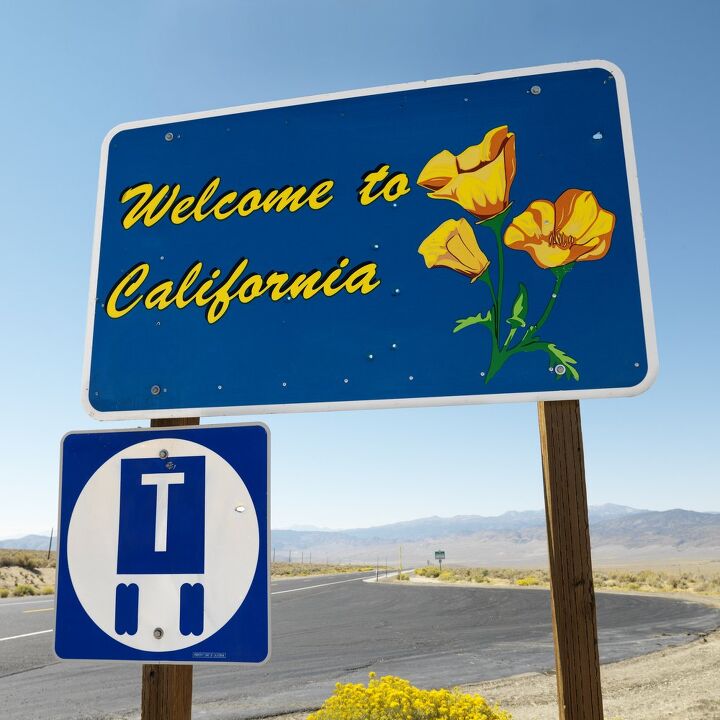
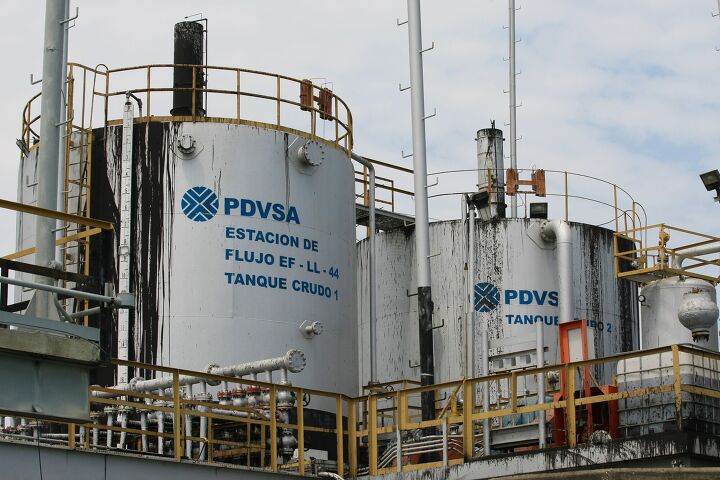

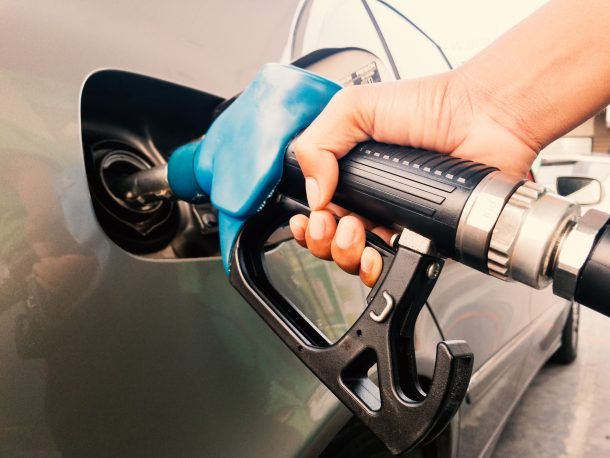
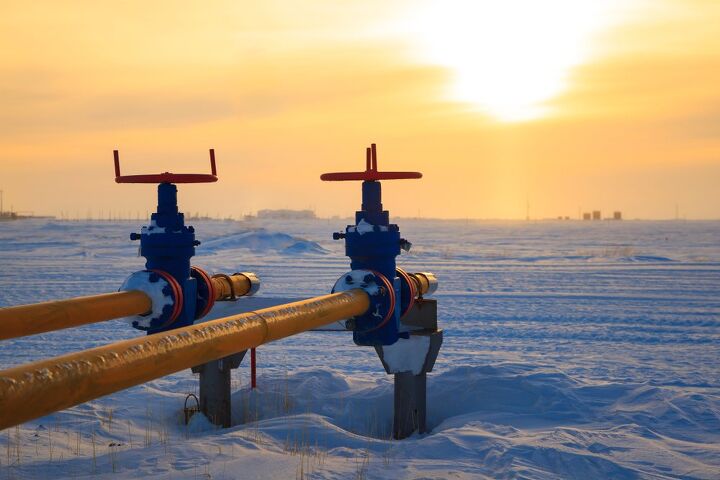
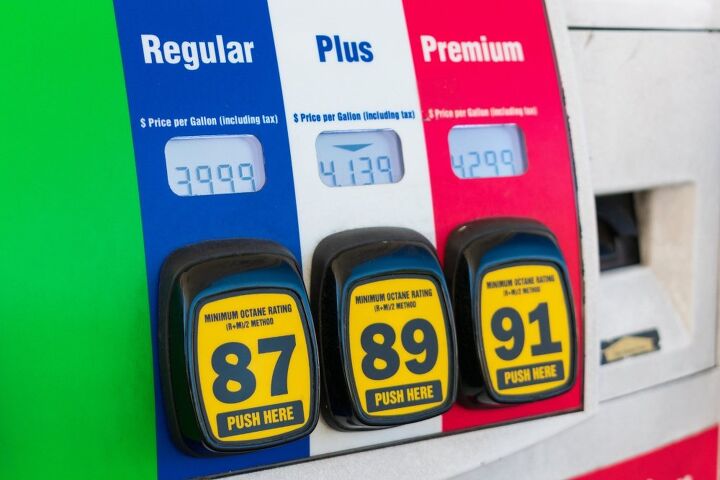
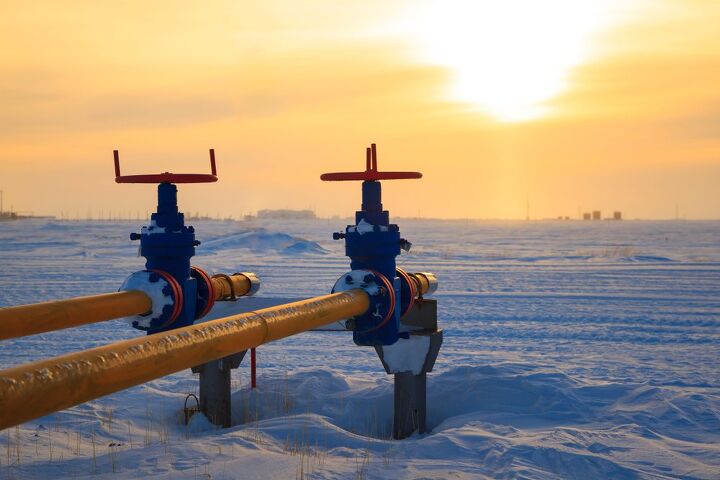
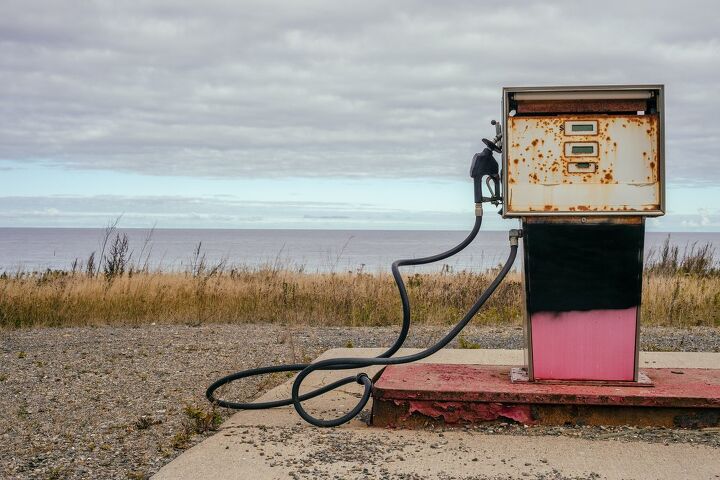

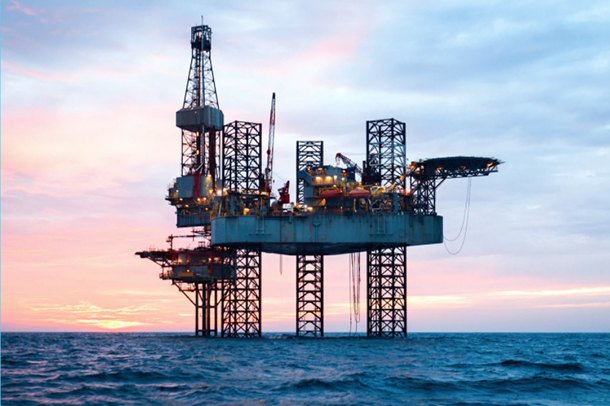

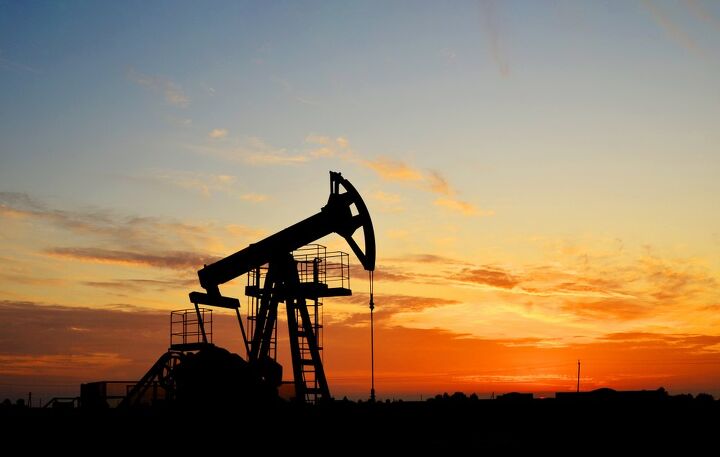







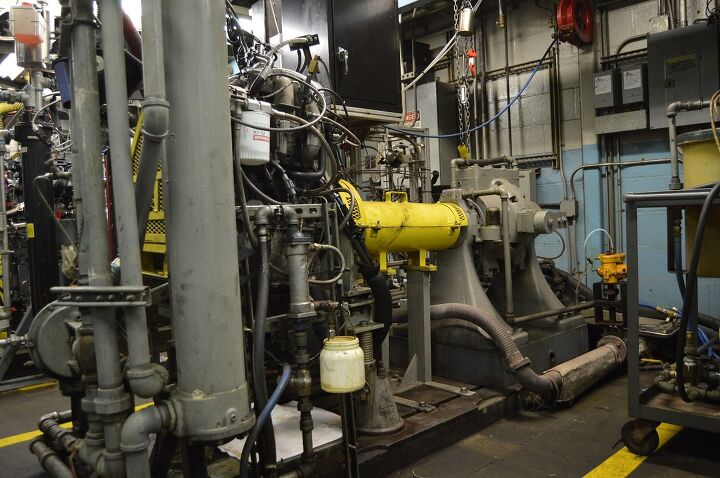
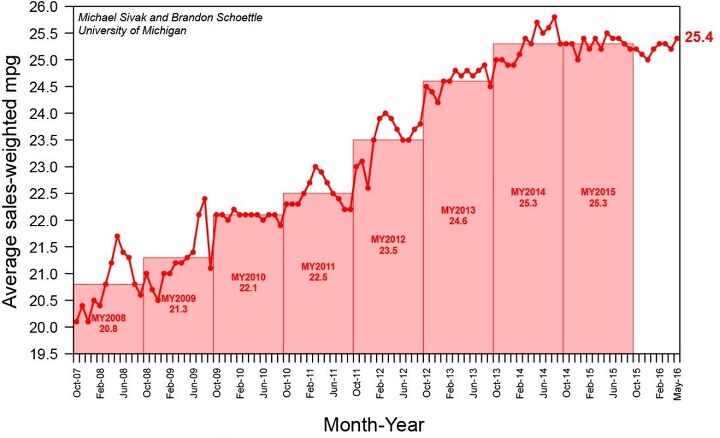

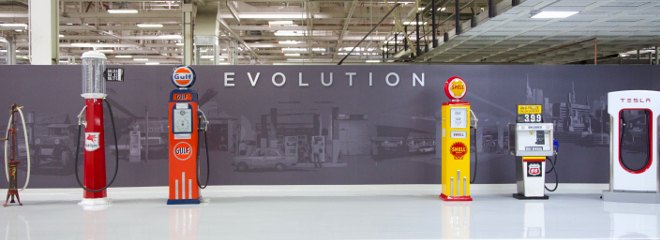





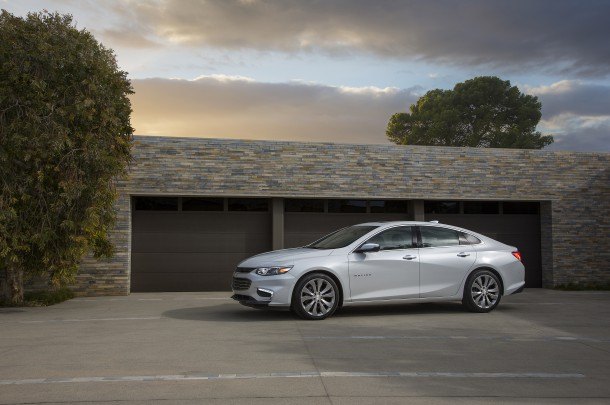
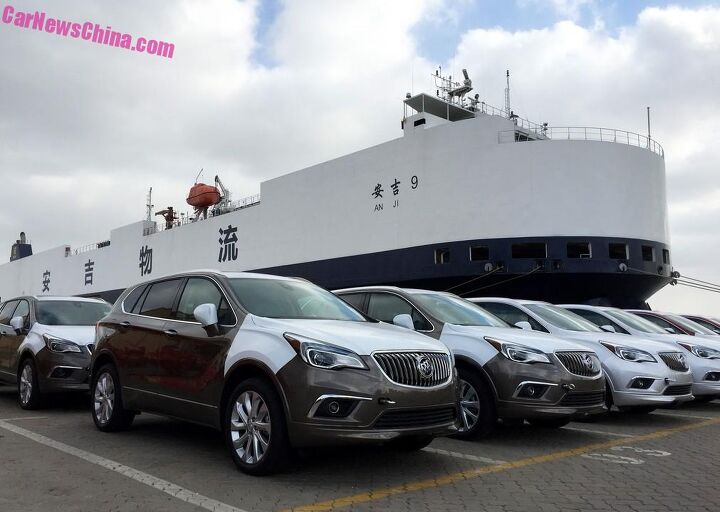
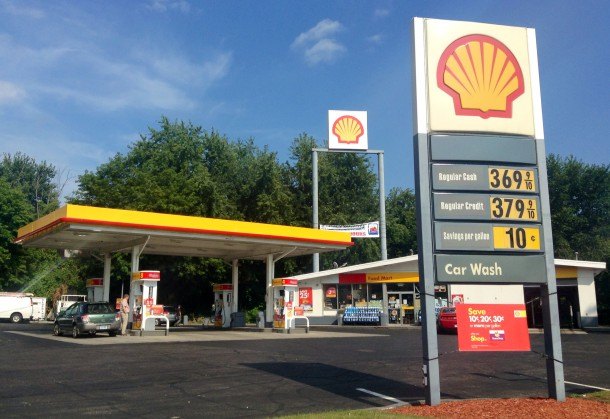
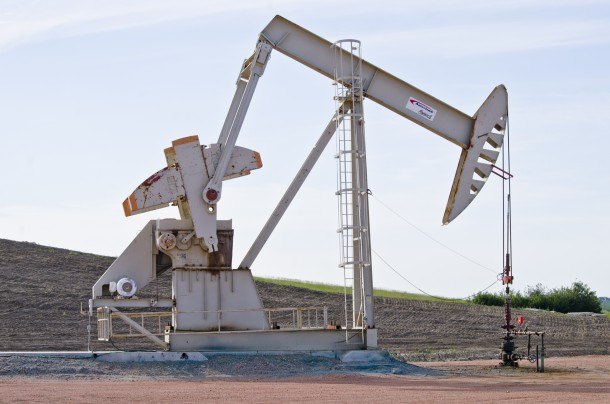


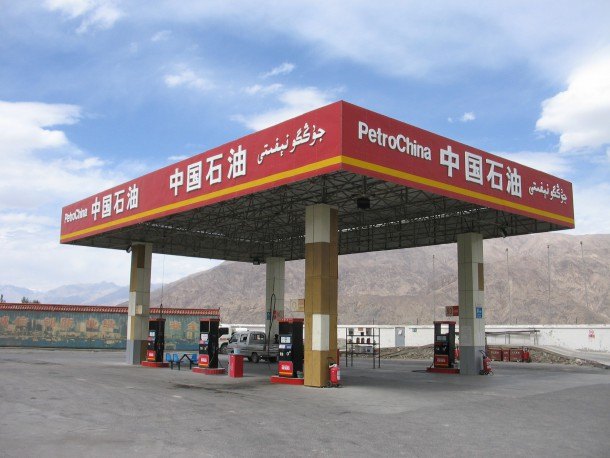
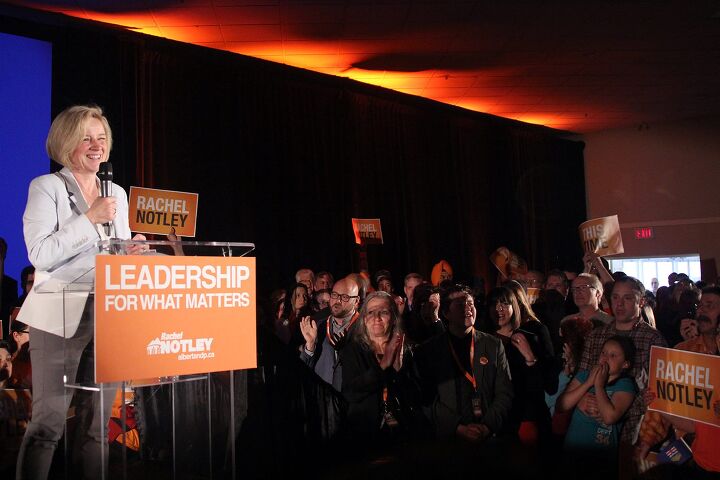


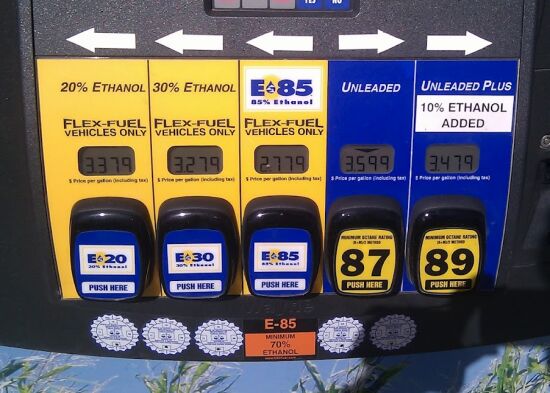
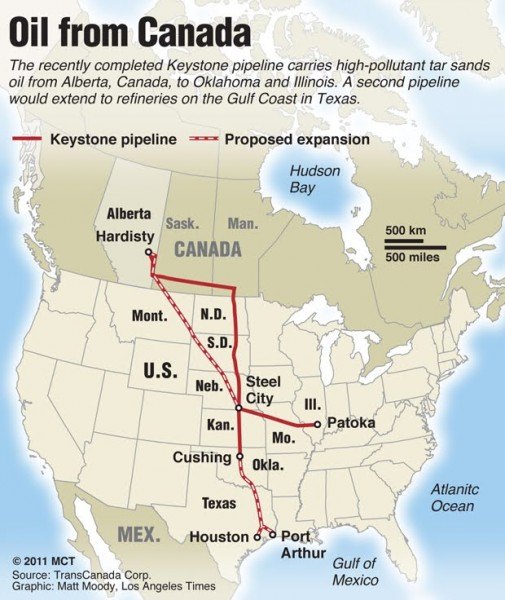

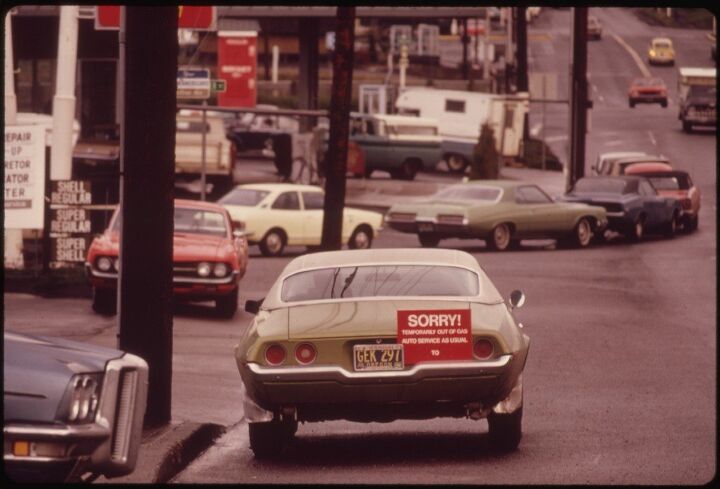
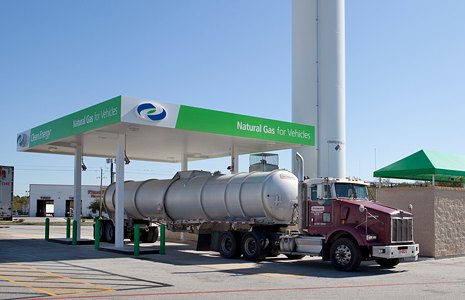
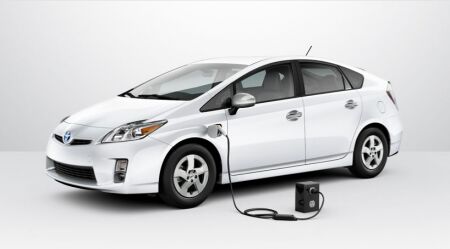



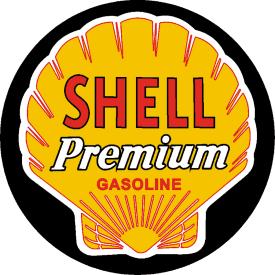

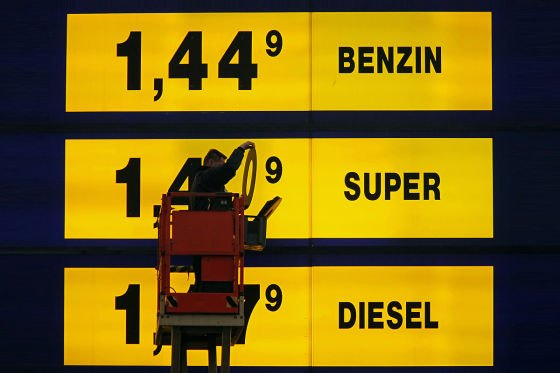
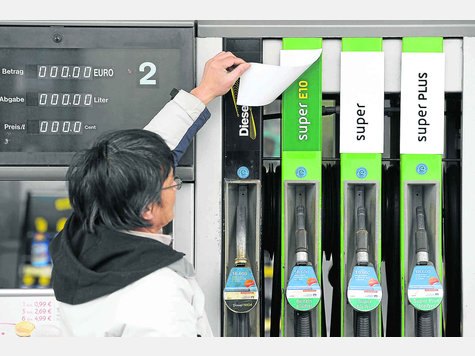
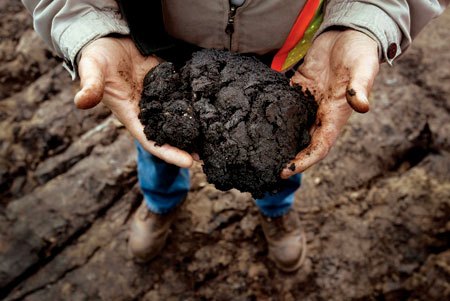












Recent Comments